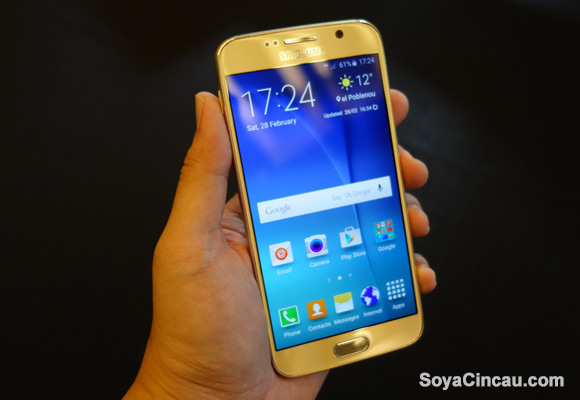Samsung’s Galaxy S6 is the Korean company’s first flagship smartphone to not support microSD storage expansion; which is a first in a long line of devices that had memory expansion, even supporting App to SD card, so what happened here?
The brand came up with it’s own UFS 2.0 storage which uses the same “Command Queue” tech as Solid State Drives that work by accelerating the speed of command execution resulting in about 2.7x faster performance than eMMC 5.0 memory that was part of the previous batch of Samsung’s flagships. And the Galaxy S6 has one under the hood.
This brings us back to the lack of an SD card slot, which could have compromised the blazing fast performance, and this is true for all of 2014’s high end phones but it looks like Samsung really wanted their users to feel the speed though the lack of a storage expansion didn’t make users happy.
GSMArena ran some tests with AndroBench (a popular storage benchmark that reads read and write performance) to determine who currently has the fastest storage in the market. Samsung promised that the new UFC 2.0 storage was faster than the Galaxy S5 and tests shows that it was even better. The Galaxy S6 did 20681 IOPS (input-output operations per second) at random read compared to 4858 IOPS of the Galaxy S5 on the same test. That’s 3.25x times better.
They also tested the microSD slot on the Galaxy Note 4 and Galaxy S5 using a Transcend Premium 300x microSDHC UHS-1 Class 10 16GB, which is pretty fast; to give an idea of the performance drop when apps are accessing a microSD card.
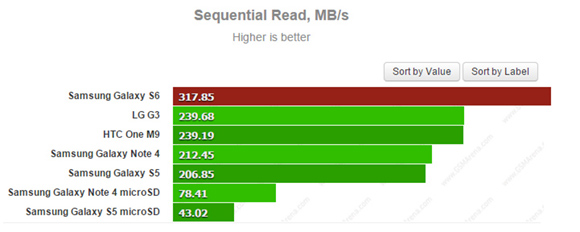
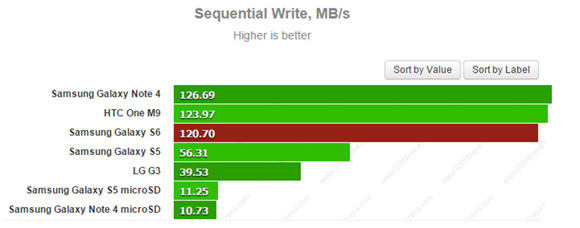
The results put the Samsung Galaxy S6 on top of sequential and random read with a huge advantage over the competition as well as in random read operations but it’s on par with the Galaxy Note 4 on sequential write tests, and it’s lagging behind the HTC One M9 and the Note 4 in sequential write however.
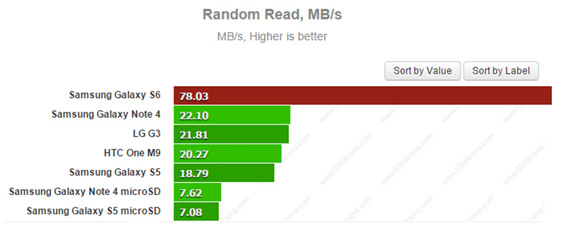
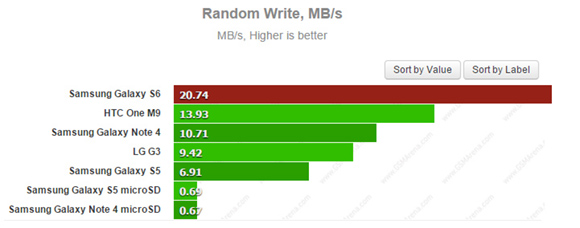
All tests were performed on Android 5.0 with the h/w encryption turned off, which is the default setting under Android Lollipop.
The results show a massive improvement thanks to the UFC 2.0 storage over the previous gen of smartphones performance, which would have been made worse if a microSD read or write was part of the equation. It still cannot compare in terms of speed to say, an SSD but the sequential read speed of the Galaxy S6 is over half of Samsung’s own Samsung 850 Pro 256GB SSD which has a read speed of 530 MB/s.
Cheap microSD storage is still ideal for backup purposes but it looks like it’s days are numbered with high end smartphones, especially with cloud storage being a popular storage solution for backups. Plus you get 115GB free OneDrive storage with your Galaxy S6 anyway.
[SOURCE]

